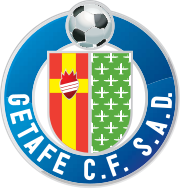Article body analysed
EPL Premier League Action Crystal Palace’s club-record 19-game unbeaten run had been typified by resilience. But it was tired legs and tired minds — combined with a huge swing of momentum — that proved their undoing in a 2-1 defeat against Everton on Merseyside. After a dominant first half, Palace lost their way. A poor decision from Maxence Lacroix gave Everton a penalty and an equaliser, and confidence shifted towards the home side as it drained from Palace. Advertisement Jean-Philippe Mateta had missed two second-half chances, and manager Oliver Glasner pointed to the psychological impact of not increasing their lead after Daniel Munoz’s opener. Things went awry from the 70th minute, a result of the mental fatigue, but Glasner said in his post-match press conference that it would be a “cheap excuse” to say that physical tiredness was a cause for defeat. That may be him choosing to accept that other factors were more important, but it does not feel like an excuse as much as a partial explanation. This was, after all, their 12th match of the season in all competitions and, of their starters at Hill Dickinson stadium, seven players had begun at least 10 of those fixtures. Mateta is a particular case in point. He may have gained a first call up to the senior France side, but his performances have not hit the heights of the past two seasons and he appears to be burdened by the demands of playing every week. With Eddie Nketiah back from injury and playing well, Glasner should consider making that change, as he did at the start of last season. Glasner has spoken about how much he values having a smaller squad because it allows him to give his players sufficient minutes. The importance of consistency and familiarity with his way of playing cannot be overstated, and without game time, it is difficult to offer that to everyone. But it is a difficult balance to strike. More matches give more chances for players to be rested and rotated. Glasner’s way of playing means that players often take longer to settle and find a rhythm, with the reward being that when they are up to speed, they are fully understanding and thrive. Sarr and Daichi Kamada are prime examples, albeit it took longer for Kamada to find his groove. Pino has looked promising but not fully adept with his new team-mates, although his performances in Thursday’s 2-0 win against Dynamo Kyiv in the Conference League and Sunday’s defeat were another step in the right direction. Giving him as many minutes as possible is crucial but doing so makes it harder to bed in deadline-day signing Christantus Uche, while Kamada might be preferred in that No 10 role on occasion instead of Uche. Advertisement Before the transfer window closed, despite a 3-0 victory against Aston Villa, Glasner seemed to suggest the squad was tired, that the muscle injuries — Sarr’s hamstring problem and Adam Wharton’s adductor complaint sustained in that game — were a result of too thin a squad and relying on the same players to play too often. They were fortunate that Wharton (one league game) and Sarr (two) were not out for long. But Uche, who joined from Getafe in September, has not started a game for Palace, and has played only 52 minutes across three games. His longest spell on the pitch lasted 45 minutes in the penalty shootout win over Millwall in the Carabao Cup, but he has otherwise been used sparingly. Glasner would make the argument that he wanted the majority of his squad in place at the start of pre-season, but now needs to give them time to adapt. He would have a point, but that is not necessarily a reason to avoid giving more of his players a break. There have not been wholesale changes, save for the Millwall game, and substitutions have tended to come later in games. The issue, perhaps, is Palace’s summer transfer business. There are several factors to consider but they might have benefited from a couple of additional signings who are ready to step into the rigours of Premier League and European football. While there is versatility in the squad, they do not have huge strength in depth. Losing for the first time since April is no reason to panic, but the underlying causes behind the end of their unbeaten run provide a reality check of what Palace can achieve this season. Psychological and mental exhaustion will need to be managed, with Glasner left to consider whether more changes are necessary. His team, he said, might actually need the “pain” to serve as further motivation to make the next step forward. Palace have finally suffered defeat, and even if Glasner will not allow himself to say so, fatigue seemed to play a part. (Top photo: Ed Sykes/Sportsphoto/Allstar Via Getty Images) Spot the pattern. Connect the terms Find the hidden link between sports terms Play today's puzzle Matt Woosnam is the Crystal Palace writer for The Athletic. He also covers topics surrounding climate and environmental sustainability in sport. Matt previously worked as a freelance writer for the South London Press and Mail Online. Follow Matt on Twitter @Matt Woosie

